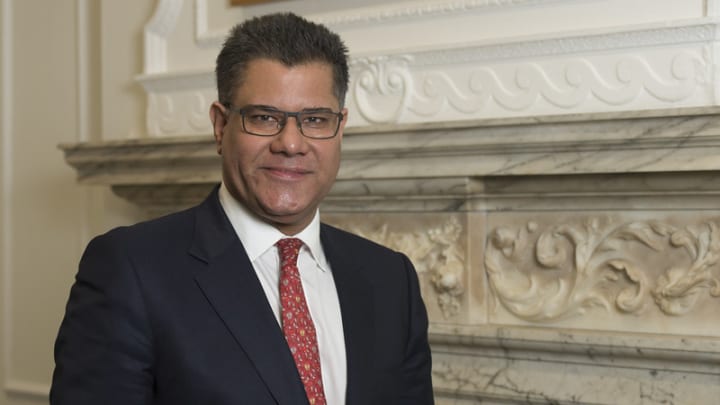
Nigeria is to benefit from 7.2 million pound research support funded by the United Kingdom (UK) government for 20 new research projects, to help address the impact of COVID-19 in vulnerable communities.
The support, which aimed at delivering healthcare access for patients in Nigeria, would also deliver mass vaccination capacity in Bangladesh and protective equipment for refugees in Jordan.
The UK, in the new programme, announced on September 5, would be partnering with leading research institutions to address some of the research and technological challenges of the benefiting countries, especially as it relates to COVID-19.
Some of the projects announced are: “King’s College London will lead a training programme for healthcare workers across Nigeria and Tanzania enabling them to deliver trusted and safe care to patients over the phone where internet availability is limited.
“Trials will involve 20 health clinics in each country to test the effectiveness of remote health appointments, recommended by the World Health Organisation (WHO) during the pandemic, to help minimise physical contact that can spread the virus.
“King’s College London will work with University of Ibadan, Nigeria; Makerere University, Uganda; and St Francis University College of Health and Allied Sciences, Tanzania,” it said.
The funds would also cover the partnership between the University of Birmingham, working with Brac University and Bangladesh University of Engineering and Technology to increase vaccine access in developing economies.
This, it hoped to achieve by researching more effective ways of storing and transporting vaccines from point of manufacture to the point of use.
It also hoped to ward against weak supply chains with inconsistent temperature control which could reduce the effectiveness of vaccines by up to 25 per cent.
Also on the list is the University of Bath and the University of Lagos’ collaboration, aimed to address the issue of limited COVID-19 testing capacity in Africa by leading a project to measure the disease in domestic wastewater, which could help reveal the health status of a population.
“By studying wastewater, real time information about infection prevalence across South Africa and Nigeria can be accessed, enabling rapid identification of COVID-19 hot spots, and helping to shape decisions around entry and exit from ‘lockdown’ periods,” it said.
A statement by the UK Office quoted Business Secretary, Alok Sharma as saying:
“Defeating Coronavirus is a truly global endeavour, which is why we’re backing Britain’s scientists and researchers to work with their international counterparts to find tech solutions to treat and combat this virus around the world.
“The research projects we are backing today will ensure that we equip some of the most vulnerable communities with the resources they need to tackle COVID-19 and build their long-term resilience to respond to future pandemics, making us all safer.”
According to the statement, other projects receiving funding include: developing a parental advice app for families affected by COVID-19 school closures across Africa by the University of Oxford, working with the University of Cape Town.
Also on the funding list is a partnership between Birmingham City University and Lusaka and Ndola Colleges of Nursing to help improve the clinical decision making of nurses in Zambia, helping to free up their time and prevent healthcare systems from becoming overwhelmed.
Also to be funded is the production of personal protective equipment with digital and 3D printing for Jordan’s Zaatari refugee camp by the University of Sheffield, working with the UN Refugee Agency.
According to the statement, the Zaatari Camp is home to approximately 80,000 Syrian refugees.
The post COVID-19: Nigeria, others to benefit from 7.2m UK research support fund appeared first on Within Nigeria.
https://ift.tt/35ik4Ho
Post a Comment